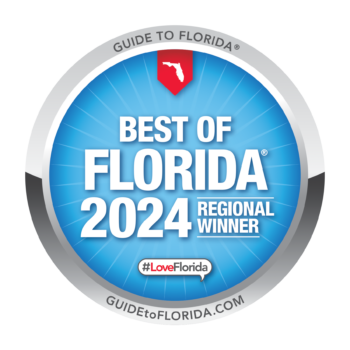TABLE OF CONTENTS
SEO, or search engine optimization, is critical for any business. 68% of all online experiences begin with a search engine, so if you want an online presence, you need to appear on those search engines. With that in mind, here’s another statistic that may surprise you: 96.55% of all content gets no search engine traffic. How can you ensure your website is part of the 3.45% that does? The answer lies in effective SEO.
Web pages and blogs are two types of website content that serve distinct purposes and contribute to SEO differently. Understanding the differences between a page and blog for SEO is crucial for developing a comprehensive SEO strategy that leverages both to maximize visibility and drive traffic.
What is the Difference Between a Page and Blog for SEO?
Website Pages: Evergreen Content that Converts
Web pages are the foundational elements of a website, providing static content that defines the business, its services, and its value propositions. Unlike blog posts, which are regularly updated and designed to engage audiences with fresh content, web pages are meant to be evergreen.
This means their content remains relevant over time and does not require frequent updates. The primary purpose of web pages is to deliver vital information about the business and guide visitors toward conversion actions, such as filling out a contact form or making a purchase.
Types of Pages
Service Pages
Service pages provide detailed descriptions of each service a business offers. These pages are typically included in the website’s main navigation to make them easily accessible to users. They are rich with information about the specific services, outlining features, benefits, and any unique selling points.
Service pages are crucial for targeting high-volume, competitive keywords directly related to a business’s core offerings. SEO strategies for these pages include optimizing on-page elements such as title tags, meta descriptions, and headers, as well as incorporating relevant keywords naturally throughout the content. These pages often rank high in search results due to their relevance and depth of content.
Location Pages
Location pages are a type of service page tailored to specific geographic areas. They are essential for businesses looking to rank for local searches, as they target keywords that include a location modifier, such as “plumbing services in Miami.” By focusing on city-specific terms, these pages help attract local traffic and cater to users looking for services in their area.
For SEO, location pages should include localized keywords, integrate maps, and feature location-specific content that enhances relevance for search engines and users. Including these pages in the footer or local navigation can also help with internal linking and site structure.
Landing Pages
Landing pages are designed with a singular focus on conversion, often used as part of advertising campaigns. Unlike service or location pages, landing pages typically do not appear in the main navigation bar and are created for specific marketing purposes, such as capturing leads or driving sales.
With minimal copy and typically no navigation links to distract users, landing pages are streamlined to guide visitors directly to a call-to-action (CTA).
Blogs: Engaging, Informative, and Fresh
Blogs are a dynamic and versatile website component designed to provide regularly updated content that engages audiences and attracts traffic. Unlike static web pages, which focus on delivering core business information and converting visitors, blogs are intended to offer fresh, relevant content that addresses specific questions, shares insights, and covers trending topics within the industry.
The primary purpose of a blog is to engage readers, establish authority, and drive organic traffic by providing valuable information that resonates with the audience. Common types of blogs include:
- Informative Articles
- Industry News and Updates
- How-to Guides and Tutorials
- Opinion Pieces and Thought Leadership
- Case Studies and Success Stories
- Interviews with Industry Experts
- And more
SEO and Blogs
The SEO strategy for blogs revolves around creating content that is optimized for long-tail keywords — specific phrases that are less competitive but highly relevant to niche topics and user queries. By targeting these keywords, blogs can attract targeted traffic looking for detailed answers or in-depth information. An effective blogging strategy should include the following elements:
Frequent Content Updates: Regularly posting new blog content helps keep the website fresh and signals to search engines that the site is active and up-to-date.
Encouraging User Engagement and Social Sharing: Well-crafted blog posts that provide valuable insights encourage readers to engage with the content through comments, shares, and likes.
Building Backlinks Through Valuable Content: High-quality blog content is more likely to be referenced and linked to by other websites. Backlinks are a strong signal to search engines of a website’s authority and relevance, which can significantly boost SEO performance.
Utilizing Multimedia (Images, Videos) to Enhance Content: Including images, videos, infographics, and other multimedia elements within blog posts can make content more engaging and shareable. Multimedia also helps break up text, improving readability and increasing the time visitors spend on a page, both of which positively impact SEO.
And don’t forget to write a catchy blog title so users will actually click through to your content!
Blogs complement web pages by providing the fresh, dynamic content necessary for maintaining visibility and relevance in a competitive digital landscape.
In Summary: A Comparison of Blogs and Pages
Keyword Focus
Pages: The primary focus for web pages is on high-volume, competitive keywords that align closely with the business’s main products or services. These keywords are often short-tail and broad, targeting users who are likely in the decision-making phase and looking for specific offerings. For example, a service page might target a keyword like “digital marketing services,” aiming to attract users searching for professional solutions.
Blogs: In contrast, blogs target long-tail keywords that are more specific and less competitive, focusing on addressing user queries and capturing search traffic around niche topics. These keywords often reflect the informational intent of users who are in the early stages of the buying journey or looking for expert insights and advice. A blog post might target a keyword like “how to improve your SEO in 2024,” catering to users seeking guidance or tips.
Purpose
Pages: Web pages serve as static, evergreen content that provides foundational information about the business, such as details about services, company history, and contact information. Their primary goal is to convert visitors by providing clear and concise information that addresses their needs and encourages them to take action.
Blogs: Blogs are designed to be dynamic and engaging, regularly updated with new content to attract and retain visitors. Their purpose is to educate, inform, and entertain readers, fostering long-term relationships and encouraging repeat visits.
Content Examples
Pages: Content typically found on web pages includes “Our Services,” “About Us,” “Contact Us,” and “Client Testimonials.”
Blogs: Blog content is more varied and can include articles like “10 Tips for Better SEO,” “Latest Trends in Digital Marketing,” and “How Our Services Helped Company X.”
Build Your Best SEO Strategy
Understanding the distinct roles that pages and blogs play in an SEO strategy is essential for any business looking to maximize its online presence. By effectively balancing both types of content, businesses can build a robust SEO strategy that enhances visibility, and ultimately drives conversions and growth.
If you want to enhance your business’s online presence, schedule a call with us today.









